|
Perhaps not surprisingly, I have found myself thinking about sickness lately. From colds, to Covid, to cancer, it’s likely you know someone who is sick, are caring for a sick family member, or are sick yourself.
Being sick is miserable and caring for someone who is sick is no picnic either. It is hard to watch our loved ones suffer. The Catechism counts illness and suffering among the “gravest problems confronted in human life. In illness, man experiences his powerlessness, his limitations, and his finitude” (Catechism of the Catholic Church, 1500). The way we respond to sickness can tell us a lot about ourselves. The Catechism describes two different responses: “Illness can lead to anguish, self-absorption, sometimes even despair and revolt against God. It can also make a person more mature, helping him discern in his life what is not essential so that he can turn toward that which is. Very often illness provokes a search for God and a return to him” (Catechism of the Catholic Church, 1501). While possible reactions are not limited to these two, I tend to fall into the first category. I often respond to illness by wallowing in self-pity and self-indulgence. When I contemplate saints who suffered terrible illness without complaint, I feel as though I fall very short. Can I really live my sickness or that of my loved ones in the presence of God? If I remain wrapped up in myself, sickness is simply misery. But if I am open to receiving the grace of God, it’s a very different story. Take today’s readings for instance. On today’s feast of the Conversion of St. Paul, we hear about his reaction to being struck down and left blind, weak, and clueless. How does Saul (later known as St. Paul) respond to his illness? He allows himself to be led by the hand and, under Ananias’ care, recovers his sight and regains his strength. Ananias’ role in this healing is remarkable. He responds to God’s call to care for Saul, who just before had been “breathing murderous threats against the disciples of the Lord” (Acts 9:1). Ananias goes so far as to call Saul “my brother” (Acts 9:17) and nurses him back to health, despite having many reasons that might justify doing otherwise. Ananias exemplified Christ’s own compassion toward the sick and his ministry of healing. “Moved by so much suffering Christ not only allows himself to be touched by the sick, but he makes their miseries his own: ‘He took our infirmities and bore our diseases’ (Mt 8:17; cf: Isa 53:4)… By his passion and death on the cross Christ has given a new meaning to suffering: it can henceforth configure us to him and unite us with his redemptive Passion” (Catechism of the Catholic Church, 1505). Though we may sometimes feel abandoned in our illness, Christ is not indifferent to our suffering. On the contrary, he has made it his own, and, through his own suffering and death, Christ has transfigured it. When we respond to illness with a desire “to freely unite [our]selves to the Passion and death of Christ” (Catechism of the Catholic Church, 1499), suffering takes on a new meaning. It can be an opportunity to become more like Christ and to participate in the saving work of Jesus. This in no way downplays or dismisses the difficulties and challenges of being sick, but rather elevates them and transforms them into something greater, something which contributes “to the good of the People of God” (Catechism of the Catholic Church, 1499). Let us allow today’s readings to prompt us to examine our own attitudes towards sickness and suffering, especially if we find ourselves in the position of caring or being cared for. How can we, like St. Paul, allow ourselves to be taken by the hand? How can we more readily and gratefully accept help in our illness? How can illness serve to draw us closer to God and make us more Christ-like? How can sickness make us more mature and help us to recognize what is essential? How can we be more open to the grace of God which can offer us the strength, peace, and courage to overcome the difficulties that come with sickness? How can we, like Ananias, respond to God’s call to bring his healing to others? How can we lovingly lead our sick loved ones out of anguish, self-absorption, or despair? How can we imitate Christ in our compassionate care for the sick and suffering? To visit our COVID-19 Resource Page, please click here.
0 Comments
Walking into the Catholic University Career Fair in the Fall of 2019, I had no idea the impact that it would have on my life. I remember seeing all these scientific and engineering firms and feeling totally lost and defeated as a history major, when then, out of the corner of my eye I spotted a table for the Catholic Apostolate Center. I remembered the organization from a friend of mine who was working at the Center and I decided to go up and learn more. A few months after going to the Center’s table, I began as a marketing intern for the Center and I really enjoyed learning and collaborating with my fellow staff members. During my internship semester, the COVID-19 pandemic hit, and everything was moved online. I was so anxious about my internship. I saw a lot of friends losing their jobs, positions, and internships due to the pandemic, but the Center was able to quickly adapt to remote work and I was able to keep my internship. I was thrilled! During a time of uncertainty, my work as an intern was one constant in an ever-changing world and it felt great to be able to rely on the Center during those difficult times. The staff would virtually gather weekly in prayer and in lighthearted conversation throughout the pandemic which allowed for some much needed interaction in a newly virtual world. I was so impressed with how the Center was able to not only adapt to the pandemic, but also grow and continue to put out amazing content for our audience. The Center provided thoughtful and helpful resources, podcasts, and webinars surrounding the pandemic such as adapting to telework, anxiety surrounding the pandemic, providing virtual mass links, and other spiritual resources to allow the Lord to guide us through these unforeseen circumstances. These not only were helpful to me as a staff member, but as a college senior who was struggling with the loss of my final semester of school, leaving my friends, and returning home to virtual classes. My time with the Center continued after graduation as I continued to work part time as a program associate throughout the summer and fall of 2020. It was wonderful to be able to rely on the support of the Center and be able to aid in the creation of new programs and resources. I would work my 9-5 job, eat dinner, and then complete my Center work at night. I still felt like I was part of something bigger than just myself and my work and that I was contributing to helping others. Now working full time for the Center, I have been even more blessed to continue working for such a wonderful organization. In my two years working for the Center, I have seen myself grow from a shy intern, to working part time, and now being able to embrace the Lord’s call in my work. Not only have I seen this growth in myself, but I have also seen this growth in the Center as an organization. From partnering with other organizations, to holding new and exciting webinars, creating and updating resource pages, growing our Ad Infintium blog, and an increased social media presence, the Center continues to be a place where all can grow spiritually. With this New Year, we have once again seen an uptick in the number of COVID cases throughout the world. I know that throughout these continued challenging times, the Catholic Apostolate Center will continue to be a source of fruitful conversation, evangelization, and growth throughout the pandemic, 2022, and for many years to come just as it has been for the past ten years. I am so thankful and grateful to be a part of this team and I cannot wait to see what the Lord has planned next for us. To visit our COVID-19 Resource Page, please click here. Social media has been gaining momentum in the Catholic world since the mid-2010s; however, since the COVID-19 pandemic began, digital evangelization and virtual faith-sharing have become even more important and prevalent. Because in-person liturgies, retreats, and daily interactions were not possible, Church organizations across the U.S. began to increase their digital footprint. Although the Catholic Apostolate Center has used technology and social media as tools for evangelization since its inception in 2011, the COVID-19 pandemic also led the Center to a greater focus on digital evangelization and online formation tools. As an intern with the Catholic Apostolate Center, my time has been punctuated by helping people encounter the Church and faith formation more positively. Specifically, expanding the Center’s courses on Catholic Faith Technologies’ e-learning platform and building an app for the Immaculate Conception Province of the Pallottine Fathers and Brothers has allowed me to create new ways for people to encounter Jesus Christ and learn more about Him. Pope Francis has followed the footsteps of his predecessors by encouraging the Church to continue evangelization over the internet. Our Holy Father has stressed the importance of using the technological means available to us today in order to proclaim the Gospel “to all the nations.” This evangelization can come in many ways and forms, and the Catholic Apostolate Center has embraced this understanding since its foundation. This summer, I have been working on adapting the Center’s “Apostles on Mission” in-person course to be an asynchronous course online with Catholic Faith Technologies’ e-learning platform. As a secondary education major, I was able to hone my skills as an educator by looking at the lesson outlines and plans and advising a break, an activity, or a different method of conveying the content to increase engagement. This project has also helped me look at what intellectual faith formation means and why it is so pertinent to the spiritual life. Formation in the Church calls us to learn more about Jesus, the Church, our Faith, and our own strengths and weaknesses. However, with the advent of the internet, we must cast the net over the right side of the boat, as Jesus calls us, to reach more people and continue to spread the Gospel message. Expanding digital resources for faith formation allows all the faithful to grow closer to our Lord. Digital evangelization can also allow for a more profound personal encounter with Jesus Christ. As seen throughout the pandemic, prayer resources can help people feel connected to the greater Church community. People want to experience various types of prayer to delve deeper into the spiritual life. The Catholic Apostolate Center has been working tirelessly this summer to create a prayer app for the Immaculate Conception Province of the Pallottine Fathers and Brothers. This app—entitled “Revive & Rekindle”—will assist the Pallottine community and the general faithful in growing closer to Christ through the spirituality of St. Vincent Pallotti. This project has allowed me to make two important observations about the Catholic faith. First, we must promote various forms of prayer and devotion to help the faithful find the styles of prayer that best suit them. Second, prayer and devotion must be disseminated and promoted in different media to spread the Gospel message to as many people as possible. The “Revive & Rekindle” app will allow people to grow closer to Jesus through reflections and prayers inspired by St. Vincent Pallotti, who urges us all to become Apostles for the Lord. As a strong proponent of the New Evangelization, Pope Francis encourages us to enter the digital landscape to encounter people and bring them closer to Christ. The Church can only do this through intentional formation and by promoting an encounter with Christ online. As an intern at the Catholic Apostolate Center, I have grown professionally, personally, and, most importantly, spiritually. Working with the Center, I have concretely realized what Pope Francis means when he urges young people not to “wait until tomorrow to contribute your energy, your audacity and your creativity to changing our world. Your youth is not an “in-between time” (Christus Vivit). A vast majority of people in the United States have social media, and since many Catholics are among this number, we have to preach the Gospel on all channels and encounter others and Jesus Himself through means of digital formation and evangelization. We must reach out to all corners of our world and society to be Apostles on mission for Jesus.
8/24/2021 It Will All Fall Into Place: Reflections on Graduating During the COVID-19 PandemicRead Now2020 was a difficult year for so many people; it is safe to say that we all were impacted in some way. To me it felt like the entire world stopped and everything started moving in slow motion. March 2020 was my senior year of college—what was supposed to be the best semester of my life, the beginning to the end, the start of a new chapter. Yet, there I was, driving back to my family home in Massachusetts to study and then graduate in the home that I grew up in. I felt so crushed, defeated, and overwhelmed. I remember that Easter, only a few weeks into the pandemic, feeling so overjoyed that some of my friends and parish community decided to come together and celebrate our Risen Lord. We had a drive-by celebration in the parking lot where our pastor blessed each of us and we waved at our friends from the safety of our car. I felt so overjoyed to see their faces and to get a glimpse of normalcy. I remember that Easter morning being filled with joy, possibly the Lord’s way of showing us that there is a light at the end of the tunnel. Yet, around that same time, we found out that school was cancelled for the rest of the semester and Zoom became our new normal. I remember thinking, “The last time I stepped into a classroom was the day before spring break and all I wanted to do was get out of there, but now, I’ll never be able to go back.” While that may have been a bit dramatic, it truly was a time where my faith was the only thing that was able to guide me. While I was upset over the loss of my senior year and the loss of long-anticipated memories, I was so thankful and blessed to have my health, my family, and my faith. There were so many people grieving the loss of family members, enduring financial difficulties, and risking their lives on the frontlines of the pandemic. It was hard not to laugh at myself for crying over my difficulties when faced with the reality of what was going on throughout the world. The Lord guides us on a path. Though we may not know where or how it ends, we know He is there. I knew this time in my life would already be difficult—saying goodbye to friends, trying to find a “real” job, and trying to balance new responsibilities. Adding to that the uncertainty of a pandemic only exacerbated the overwhelming anxiety I knew was around the corner. I kept repeating this phrase over and over in my head: “it is all part of God’s plan.” The phrase kept rekindling faith in my heart when things began to feel difficult. It can be seen as a silly, trite phrase. But for me, the impact it had on my life was so important. It helped me to have a conversation with the Lord daily—whenever things felt tough or I felt defeated or just lost. After repeating the simple phrase over and over in my head, I felt the Lord’s presence like a hand on my shoulder continuing to guide me throughout life. I couldn’t help but exhale. Graduation came and went. I wore my cap and gown in my childhood living room surrounded by my parents trying to figure out how to set up Zoom on the T.V. It was an underwhelming experience compared to the grand festivities I had imagined, yet I was very thankful to be able to celebrate with my parents. Trying to navigate through “adult life” during the pandemic proved to be difficult within itself. It felt so easy to isolate myself from those around me and to disconnect from everything. Everything seemed big: applying for jobs, getting my first apartment, living in the city. It often felt easier to give up when things got difficult. But that is exactly the opposite of what the Lord calls us to do. The Lord wants us to call upon him during the difficult times and to remember that everything is part of his plan. He is there to walk with us through the ups and downs and invites us to lean upon his strength in times when ours fails. While the road ahead seems uncertain, there is one thing that we can count on - the love and support of the Lord. Over the past year, what I have found is that everything is part of His plan; every small step we take, every thought that enters our mind, every mundane task—it all will fall into place. When the COVID-19 pandemic began and so much seemed outside of my control, I turned to prayer as a source of comfort, nourishment, and stability. Favorite Catholic podcasts, powerful homilies, Gospel-inspired music, Scripture reading, and devotions like the Rosary kept me grounded in a higher reality than the confusing, dark, and humbling one I faced. Perhaps I felt the need to overcompensate in a time when I couldn’t physically receive the Eucharist. The lack of physical Communion meant I searched for spiritual, mental, and emotional communion with the Lord in other ways I found fruitful. In this way, times of trial can bear much fruit—suffering sharpens our eyes to the eternal and true. It is sobering. Surrendered to God, suffering can be the most direct path of conversion and redemption. As the pandemic continued and I was able to adjust to my new “normal,” my sense of emergency slowly began to fade. I found ways to be comfortable and to continue meeting needs like friendship, worship, and rest. No, everything was not as it had been. Life was still a shadow of its former glory. And yet, I had found ways to cope. As this trajectory continues with the reopening of society in many ways, I have begrudgingly found that my deep prayer life has slowly faded. Becoming more of a checklist than a time of renewal, my prayer time is filled with distraction and noise. I’ve come to realize that I would rather fill my time with the noise—albeit good noise—of a Catholic podcast or homily instead of turning everything off and filling my time with God Himself. I’m more comfortable hearing others talk about God and their spiritual insights than talking to God. I’m also more comfortable talking AT God than WITH Him. I have a lot to say, but am not spending time listening or receiving. Finally, once I do settle down to pray, my tasks, chores, and rambling thoughts bombard me. My prayer time is filled with noise and distraction. Why is it easier for me to scroll through a newsfeed of beautiful images and consumer goods than to thumb through my Rosary meditatively? Why is it easier to respond at all moments to the latest texts in a never-ending group thread than it is to respond at all moments to the promptings of the Holy Spirit? Why is my heart more easily captured by the words of the media than by the Word of God? For perhaps the millionth time, I must face again a thorn in my side that prevents me from greater holiness: noise. “Noise, the grand dynamism, the audible expression of all that is exultant, ruthless, and virile—Noise which alone defends us from silly qualms, despairing scruples, and impossible desires,” says the demon Screwtape in C.S. Lewis’ classic, The Screwtape Letters. He continues, “We will make the whole universe a noise in the end. We have already made great strides in this direction as regards the Earth. The melodies and silences of Heaven will be shouted down in the end.” Lately in my life, it seems like Screwtape and his friends are succeeding. I’m having trouble hearing the melodies of Heaven amidst all the noise. And can’t we all admit to knowing this deep down—that much of our lives is an endless stream of noise and distraction threatening to drown out the still small voice inside? I reflect on these things once again while reading a powerful book and meeting virtually with other women--This Present Paradise: A Spiritual Journey with St. Elizabeth of the Trinity. Elizabeth, through the author Claire Dwyer, is shaking me from my complacency and passing through the distractions to help resurrect my heart. This young French Carmelite nun who lived over a hundred years ago mastered the interior life of prayer and encourages all to do the same—regardless of their vocation in life. I know I am called to more than what I’m filling myself up with; an hour of scrolling through items on sale or watching a home renovation show will never compare to fifteen minutes of virtual Adoration or a few decades of the Rosary. Any time consecrated to God is not returned unsanctified. In times of greater stability, comfort, or complacency, I’m also reminded of the Scripture passage about the wise virgins at the gate. We are called to fill our lanterns with oil as we await the Bridegroom so that we will be prepped and ready for His return. I have personally found that my preference for news feeds, shows, or internet browsing fills my lantern with something akin to water rather than oil, and so I am using this season of Ordinary Time to recommit to a quieter, more fruitful prayer life. Below are a few things I have found helpful for overcoming spiritual distraction and ensuring daily prayer:
As the world continues to reopen in ways that give us hope, I invite you to reflect on your prayer life throughout the pandemic months and set goals for yourself during this season of Ordinary Time. In the end, may we find that the melodies and silences of Heaven triumph over the noise of the world. 7/13/2021 Creating Memories: A Grandfather Reflects on His Role During the Year of St. JosephRead NowWe come in all colors, shapes, sizes. We come with many different names: Papa, Gramps, Granddaddy, Baba, Nonno or maybe even Skipper. The one thing we all share is our unconditional love for our grandchildren. One of my earliest memories of my grandfather Tony (Gramps) was sitting on his lap as he prayed the rosary. As l tried to pull it from his hands, he clutched his beads even tighter. I guess that was my first memory of prayer. When my wife and I had our first child, Gramps told me the 3 greatest things a grandfather can give his grandchildren are love, spoiling them rotten, and memories. I cherish the memories of Gramps to this day: sleeping over at my grandparents’ house, having my picture taken with him at my First Holy Communion, cutting his grass and him giving me a quarter, him asking me to sit next to him at his and grandma’s 40th anniversary dinner, and even taking my then-fiancée when I went to shovel his snow. These are some of the memories he created for me. My dad and father-in-law enhanced the grandfather experience for me as I watched them with our children and their cousins. Birthday parties, school plays, receiving the sacraments or graduations, grandpas were always there. At his grandkids’ Confirmations, my father-in-law would say “Another soldier for Christ”–adding more memories to my collection. l wonder what memories Jesus had of His grandfathers Joachim (the Patron Saint of Grandfathers) and Jacob, St. Joseph’s father. Did He pull on their prayer beads, sleep over at their houses, sit next to them at special occasions? As it becomes my turn to make memories, I pray to St. Joseph that my 4 precious grandchildren will have memories: a picture of us at their First Holy Communion, attending Mass together, me walking them to school or picking them up after school (well maybe after the pandemic), me telling them a corny Papa joke, them giving me a running hug, me spoiling them rotten or maybe even them tugging on my rosary. The aforementioned men have set the bar very high; it is my goal to follow in their footsteps. I remain extremely grateful every day that l have been entrusted to be the Papa of Mabel, Anna, Teddy and Lucy. In the year that Pope Francis has declared the Year of St. Joseph, my best hope would be that St. Joseph gives me the strength to teach them the ways of the Gospel and lead them down the path towards Christ. To me St. Joseph was like an unsung hero. His devotion must have been unwavering. Asked to be the earthly father to Jesus and husband of Mary, WOW!! what a responsibility. Teaching Jesus his trade as a carpenter, teaching Him to pray, preparing Him for manhood, things that many may overlook. St. Joseph simply did the things asked of him by God. God’s love shows through in picking Joseph for this oh so important role in Jesus’ life and the life of the Church. The more I read about St Joseph, the second J of the JMJ (Jesus, Mary and Joseph) I wrote at the top of my school papers long ago, the more awesome I think he is. He did so much without questioning his role. Thank you, St Joseph, for being an inspiration and guiding light as I navigate the waters of being a grandfather. St Joseph, pray for us (especially us grandfathers). To learn more about the Year of St. Joseph and our Fatherhood Series, please click here.
 As the pandemic eases in the United States and much begins to reopen, we have the opportunity to reflect on where we have been as Church and what we are called to do. Many are still suffering around the world and in the U.S. from the effects of the pandemic. This moment is a unique one to revive faith and rekindle charity as apostles of Christ. The Dogmatic Constitution on the Church of the Second Vatican Council, Lumen Gentium, reminds us: “The holy people of God shares also in Christ's prophetic office; it spreads abroad a living witness to him, especially by means of a life of faith and charity and by offering to God a sacrifice of praise, the tribute of lips which give praise to his name” (12). We are co-responsible as the baptized to witness Christ in what we say and do. If we say that we are believers in Jesus Christ, then we need to show our faith by what we do for others. Seems easy. It is not, as we know. We cannot go about it alone. We need the grace provided by Christ, particularly in the Sacraments, especially the Eucharist. This is why livestreams of Mass are not enough. We need to receive Christ in the midst of the community of faith, the Church, and then strengthened by him and the community, we can go forth in his name, doing his mission. What an amazing responsibility we have! To live it well, we must be living witnesses of Christ. Pope Francis invites us, in line with the exhortation of many saints, to take it a step further: “Do not be afraid to set your sights higher, to allow yourself to be loved and liberated by God. Do not be afraid to let yourself be guided by the Holy Spirit. Holiness does not make you less human, since it is an encounter between your weakness and the power of God’s grace. For in the words of León Bloy, when all is said and done, ‘the only great tragedy in life, is not to become a saint’” (Gaudete et Exsultate, 34). May the Charity of Christ urge us on!
Over the course of this past year, we have had many opportunities to lose hope. Friends and family became ill, we could not enjoy a common handshake or hug, loved ones died, churches, schools, and recreational activities were shuttered, and we were required to keep distant from each other. In such circumstances, it is easy to feel low, to feel alone, and to feel as though better times are not on the way. Yet, the saints we honor on this day teach us the exact opposite – in the darkest of times, that is when hope is most needed. By clinging to hope, one can get through any hardship. St. Thomas More (1478-1535) is probably one of the most well-known English Catholic saints. The quote, “I die the King’s good servant, and God’s first,” is attributed to him and typically serves as the basis for many a reflection on faithful citizenship. He was also a prominent humanist and counted the great Erasmus as a friend. More famously refused to acknowledge Henry VIII as head of the Church of England, leading to More’s imprisonment and eventual execution. While awaiting his trial, More composed his final work, A Dialogue of Comfort against Tribulation. He begins by stating that while some things can ease tribulation, like medicine, the most effective comfort is faith given by God. Because of faith, one can persevere through any trial encountered. He notes that one’s time on earth is fleeting compared to eternal life afterwards. Thus, one should live life striving to attain the rewards of heaven rather than those on earth. St. John Fisher (1469-1535) is perhaps less well-known to contemporary Catholics. However, in his own time, many considered him not only the greatest preacher but also the greatest theologian in all Europe. He served as the bishop of the Diocese of Rochester and chancellor of the University of Cambridge. Fisher defended Queen Catherine of Aragon when Henry VIII attempted to divorce her. He also refused to acknowledge Henry as head of the Church and paid the price of imprisonment and execution. Just before Fisher’s trial, Pope Paul III named him a cardinal. Asked to preach at the funeral of King Henry VIII’s father, Henry VII, Fisher began by declaring, “Let no man think that my intention is to praise him for any vain transitory things of this life.” The bishop went on to say that great wealth and power do not ensure eternal life. Rather, Fisher said, “The cause of this hope was the true belief he had in God, in his Church, and in the Sacraments thereof.” By holding strong to his faith in the merciful God, Fisher stated that Henry VII left this world in peace hoping to see his heavenly reward. It is easy to admire the great convictions of the great people of the past. It is much harder to match that same zeal. Pope Francis reminds us that prayer is “a sacred fire in us too, which burns continually and which nothing can extinguish.” Therefore, by working little by little, day by day, we can grow in faith and, thus, grow closer to God. And as we come closer and closer to Him, then no matter what may be going on around us, no matter the discouragement that may afflict others, no matter the tribulation, we can remain anchored in the hope that comes from God alone. To learn more about the saints, please visit our Catholic Feast Days page. For more resources on COVID-19, please click here. Walking into the endzone of FedEx Field of the Washington Football Team made everything feel real—not some fantasy about playing professional football, but the reality of graduating college and entering into a new stage in life. In the middle of May, I graduated from The Catholic University of America at FedEx Field. It was an experience filled with much joy, but also some uncertainty. The joy and happiness were palpable throughout the stadium. It was rewarding seeing four long, hard years of work and late nights come to fruition. I felt a happy sense of relief that we had made it through the chaos and craziness of the past three semesters amidst the pandemic. It was exciting getting to celebrate with our friends and family—a truly special ceremony. Later that day, I began to feel some uncertainty mixed in with my joy. Friends were moving back home or across the country. Some friends were starting new jobs while others were going to graduate school. Some friends were younger and would still be at school another year while other friends had full-time jobs. There was a lot still up in the air. Over the past couple of weeks since graduation, I have reflected on that uncertainty and realized that it relates to a lot going on today. There’s uncertainty in starting a new job, in moving, or any type of new beginning. There’s uncertainty in returning to work in person maybe for the first time in a long time. There’s even uncertainty about traveling and going on vacations with differing restrictions. As I reflected on the uncertainty I felt from graduating college, I was comforted by one simple fact: the same Jesus who was present and working in my life before will be present throughout the uncertainty. During the Nicene Creed, we say, “I believe in one, holy, catholic and apostolic Church.” In these four marks of the Church, catholic is referring to the universality of the Church. This is what I found comfort in. Even though I wouldn’t be going to Mass at Catholic University anymore, Jesus would be present at Mass at my new parish community. Even though I wouldn’t have the ability to go to a chapel as frequently, Jesus would still hear my prayers throughout my workday. I found this realization comforting and encouraging – I knew Jesus would be present throughout the uncertainty and the change. I began to think of ways that I could actively embrace the uncertainty by welcoming Jesus into the small day-to-day actions that I knew would come about because of the changes. I set two goals for this uncertain time:
In 2020, when the COVID-19 pandemic was beginning in earnest, there were many questions about what would happen in the Catholic Church if people’s lives were upended in such profound ways. In many respects, we may not truly understand the ramifications of a worldwide change in perspective until we can look back at it. That being said, with “the return to normal,” the opening up of parishes, and the re-starting of activities have come questions about what we have learned from this pandemic experience. I think many of us re-learned that community and connection are important. The question that seems to be challenging folks is: Now that we can start to plan to meet in person, what should our parish activities look like? For the past two years, I have had the pleasure of doing Master’s work in Church Management at Villanova University. Most of my studies occurred during this pandemic and offered a unique perspective of what effective parishes and communities have done to respond to a sudden shift in the assumptions of what the Church in the United States looks and acts like. Most of the parishes that were able to weather the storm well were able to do so because they were intentional about what community is and should be. They did not assume that a parish had to be only the functions that happen within a city block or a singular location, but rather can have an online presence and remotely meet people where they are. I think of my friends and colleagues with young families or who have long commutes and the complications that our parishes can impose on people who would like to be involved, but cannot be due to the lives that they lead. Are we as church leaders imposing certain restrictions for the members of the parish to be able to build a community? As active Catholics, our job is to share the joy of the Gospel that we hopefully have experienced with others. The pandemic has proven that there is a desire for community and for Christ in people’s lives despite barriers. However, we as Catholics also need to acknowledge that if we “are now just going back to normal,” we are also going back to the normal of an older and smaller church. We need to see the pandemic not as a temporary event, but rather the opportunity that God has given us to think creatively and reflectively over the past year about what it means to be Catholic in the United States. Similarly, what is our hope for the future of the Catholic Church in the United States? If we do not think about these things, we risk becoming a closed community for only those who are already active members. There were many challenges during the pandemic, but there were opportunities to grow and learn for our Church as well. My hope is that we take the lessons that we have learned, both positive and negative, about what it means to be in a community and to be community leaders and apply those findings in healthy, creative ways going forward. For more resources on navigating COVID-19 as a community, please click here. It is rare to find a moment of silence in a household with a two-year-old. Last week, unusually, provided many quiet moments as my normally energetic daughter had a high fever and spent the day on the couch or sleeping only while being held. My wife and I took turns silently holding her to help her get much needed rest. Sitting in silence—without a phone or other distraction--was agitating at first. As the time went on, the simple time spent in silence holding a sleeping child became nourishing and awakened in me a hunger for silence that I often spend time avoiding. This past Lent, I co-led an online small group for newly married men in DC. As we reflected on how the life of St. Joseph relates to us as men, we returned almost weekly to the challenge of finding silence amid phones and families. St. Joseph was not a character that most of us had taken seriously before being married or becoming a father. Yet in marriage and fatherhood, Joseph is the silent role model we need. Someone who understands us and who inspires us. St. Joseph was not a loud or flashy saint. In the children’s books of saints we have for our daughter, the life of silent St. Joseph is hardly mentioned. How can he compete with traveling missionaries, miracle workers, religious founders, and the stories of martyrs losing their heads, eyes, and more? Though his life was not extroverted or bloody, it was no less meaningful. The life of Joseph was a life of daily martyrdoms and silent missions. Without having to leave his home or his workshop, he set out each day as a missionary to offer his life for Jesus and Mary. This is reassuring to me as a husband and father of a toddler, who has been stuck at home during the last 12 months during the COVID pandemic. It is tempting to think that the only way to be holy is to be on the move or to be noticed, like the many Catholic social media influencers or popular Catholic priests or bishops. St. Joseph reminds us of a quieter, ordinary path to holiness that will earn us no new likes or followers. He shows us a hidden, silent example that we need in the noise of daily life. Joseph’s silence teaches us to rediscover the silent mission work found in our own kitchens and living rooms. The artist and Oblate Brother Mickey McGrath has a beautiful image of “St. Thérèse Doing the Dishes.” In the painting, Thérèse is at the kitchen sink elevating a plate as the priest elevates the Eucharist at the altar. This image makes plain our mission as lay men and women to unite our daily work and sacrifices to the great sacrifice of Jesus on the cross which we commemorate at each Eucharistic celebration. Perhaps this image of St. Thérèse doing dishes stands out today because our dishwasher broke this week and my mission field has been researching dishwasher pumps and motor assemblies and spending extra time in soapy water. The image reminds me that God has called me to this mission, regardless of whether it is my preference or how qualified I feel for the task. Joseph must have felt the same way in the ordinary tasks of his workshop and home. St. Joseph is a role model for how we are called to integrate our lives, finding God in every moment of our day—whether doing dishes, praying the Rosary, updating spreadsheets, or building a table. In the life of Joseph, daily work “is a kind of prayer, a way of finding God, a means of salvation…Joseph gave to his carts and yokes the same care he would have given to a tabernacle, since he understood perfectly that a word done in love goes straight to God” (Michel Gasnier, Joseph the Silent, 29). Pope Francis reminds us that, “working persons, whatever their job may be, are cooperating with God himself, and in some way become creators of the world around us” (Patris Corde, 6). St. Joseph is well known for not having a single word recorded in Scripture, but we cannot confuse his silence with a lack of mission. Joseph was a silent missionary who invites us in this Year of St. Joseph to join him in the quiet work. The silent mission of holding a sick child who has fallen asleep, of holding our tongue from an uncharitable word with a family member or colleague, of doing the dishes, or of going about our work with love. Silently. Without recognition. Like St. Joseph. Yesterday the Church celebrated the feast day of St. Damien of Molokai. As the COVID-19 pandemic continues, I reflected on the life of Fr. Damien and how striking of an example his life can be for us today. Fr. Damien was a priest in the second half of the 19th century known for his work with the leper colony on the Kalaupapa Peninsula in Hawaii. Fr. Damien initially went to the leper colony to provide support for the residents. He helped balance and stabilize the basic necessities of life for the people who lived in the colony. Even though his ministry at the colony was only supposed to be temporary, Fr. Damien discerned God’s will and recognized the need of the residents and stayed there for the rest of his life, walking with everyone in the colony. He eventually died in 1889 from leprosy he contracted from his work there. As an aspiring Catholic doctor and scientist, I have looked up to Fr. Damien. The funny thing is that Fr. Damien was neither a medical doctor nor a scientist! He was a priest who discerned God’s call to care for the physical health and well-being of the people in the leper colony. Two elements of Fr. Damien’s life have been particularly impactful for me that I think are especially relevant amid the COVID-19 pandemic. Firstly, I am inspired by Fr. Damien’s discernment of God’s will in caring for the health and well-being of the residents, and his courage to follow God’s will. I think it is very easy to see the path of least resistance and assume that it is the “right” path. But Fr. Damien teaches us a different lesson. He knew it would have been easier to stay at the leper colony temporarily, but instead of placing his will first, Fr. Damien placed God’s will first. Even though this meant continuing an incredibly challenging ministry that he was not particularly qualified for, Fr. Damien followed God’s will. He opened his heart to be filled with grace and courage to continue his ministry. Secondly, Fr. Damien can serve as a role model for us today in recognizing the interconnected nature of physical health and spiritual health. This school year, I have found myself quarantining and isolating on multiple occasions. We weren’t allowed to walk outside or anything in isolation. I found it hard to get the energy to watch online Mass or much less do anything when physically I couldn’t go anywhere. In his ministry on the leper colony, Fr. Damien recognized that part of caring for one’s spiritual health included caring for their physical health. He devoted himself to holistically improving the living conditions of those in the leper colony to the greatest extent that he could. He lived a life of service, always adapting to the greatest need of the people he was with. I’m neither a doctor nor a scientist yet, and most of us will never be. So, I find myself thinking, how can I connect the lessons from Fr. Damien’s life to my day-to-day life? One way I think we can do that is by discerning God’s will for us, even in small, routine actions. In our workplaces, schools, parishes, and other places we frequent, we can discern God’s will for using our gifts to benefit the community. These might not be big, grand ways like Fr. Damien, but lots of small actions over time that build up to have a great effect! And, just like Fr. Damien, we can pray for the grace and courage to live out God’s will throughout our lives. A second way we can live out Fr. Damien’s lessons is by helping to care for our family, friends, co-workers, neighbors, etc. in their physical health. If we know someone is having to quarantine, we can drop off food outside to them. As the weather is getting nicer, we can go on socially distanced walks outdoors or other outdoor activities. While we aren’t called to a leper colony in Hawaii like Fr. Damien, we can still connect our physical and spiritual health right where we are and learn from Fr. Damien as a role model for us today. St. Damien of Molokai, pray for us!
I felt for my husband. He had just hung up the phone with a family member, letting him know that we would not be attending a birthday party. “That was so uncomfortable,” he said, “I can tell I hurt his feelings.” The party would be fun, but jam-packed with people and a risk for our family that we were not yet ready for in COVID times. I can relate to the discomfort. It had only been a week since a friend declined an invitation to dinner on our patio, citing the very same reasons that we had just offered to our family member: they weren’t ready. Receiving her text, however gracious it was, made me feel like she believed us to be dirty, reckless, and wrong in our choices. It is a situation we find ourselves in time and again: assessing risk and making decisions that bear the weight of our mental and physical health, all the while revealing a supposed worldview and delivering a perceived judgement. At best, these decisions and conversations are the source of relational aches. At worst, they create genuine conflict and damaged friendships where hurt hearts struggle to heal. The rapid sequence of these interactions and the rate at which they seem to be occurring has given me pause. Each time, I worry about the repercussions of choosing not to attend an event at which I would be wearing a mask while no one else is--will my friends feel judged by me? Am I hurting them? How do I balance that with the decisions my husband and I have intentionally made for our family? Then, what do I do with the pain when friends and loved ones choose not to be around me? What do I let that say about who I am, and how they feel about me? Most importantly, how do I honor my role as a disciple of Jesus in each of these interactions? As I try to remember to do with all things, I sought the answer to these questions by looking to Jesus. God’s Word, living and active, has plenty to say about navigating these complex moments. Be merciful, just as your father is merciful. Luke 6:36 When I live wrongly, am uncharitable in my words or actions, or neglect to walk in faith, the Lord extends his mercy to me. I am reminded here that when I feel hurt by the manner in which an invitation is declined or I cannot see eye to eye with a loved one, that I am called to react with mercy. It is likely that I do not know the intricacies of the other persons’ thoughts and feelings around pandemic living. I don’t know the details of their story. I do know that I am commanded to love my neighbors, even if they are making different choices from me. Search me, oh God, and know my heart! Try me and know my thoughts. See if there be any grievous way in me, and lead me in the way everlasting. Psalm 139:23-24 I feel heat rise up in me when I interact with someone who is living differently from my family, even though I know it shouldn’t. I bear the responsibility of investigating the rise in tension that I feel, and bringing it before Jesus. I consider whether I am seeking validation in my choices from those around me or from God. I reflect on where my worth and acceptance come from, and if a change needs to be made. An assessment of my words and actions allows me to remain in truth, confess my sin, and love more like Jesus. He said to them, “These are my words which I spoke to you while I was still with you,” [...] Then he opened their minds to understand the scripture. Luke 24:44-45 Jesus spoke these words to his disciples upon seeing them for the first time after his Resurrection. Surely, in their humanity, they believed they understood the permanency of death and needed no additional data. Still, their minds were opened, they took on new information, and their beliefs changed. When I humble myself to hear thoughts and ideas that challenge what I believe and prove me under-informed, I grow. Allowing myself to be open to the possibility that the person with whom I’m in conflict with might have something to teach me allows me to love them well and avoid pridefulness. Come to Me, all who are weary and burdened, and I will give you rest. Matthew 11:28 This has been an exceptionally tiresome period of life. My mind feels perpetually in high alert, my kids go from in-person schooling to virtual learning, and back again. The world feels at odds. When I’m exhausted, it’s hard to bring my best self to my friends and family, to introspection, and to take on more and challenging information. Some days I’m barely getting by. It’s why it has become essential for me to find rest in the Father. The more time I spend in prayer, in the Word, and participating in the sacraments, the greater my bandwidth will be to face the difficult interactions that will surely arise. I turn to my husband and we walk through what God has laid out for us here. In charity and humility, we work to accept that what is right for our family is likely different for the families around us. We are affirmed in who God says we are, and we rest in that. And when we are faced with this situation again next week or the week after, we will do our best to remember these truths. We will try, in this and in all things, to love like Jesus. For more resources to grow spiritually during the COVID-19 pandemic, please click here.
How are you navigating daily life these days? Are you scurrying around afraid of what is next or are you charging into each day with enthusiasm and hope? That sounds like the opening to an infomercial about to reveal some amazing product to enhance your life in some miraculous way, doesn’t it? But these are questions we need to ask ourselves as Christians; Jesus calls us to be exuberant about our mission in every moment because every moment counts. Life as we knew it before the Covid-19 pandemic has not returned, and all of us are still in some stage of the mess. But, as Easter people, we hold firmly to God’s promise that He is with us always, supplying grace and wisdom, no matter the circumstances of our present life. And this promise envelopes me personally with great comfort and allows me to begin each day with joy! The Easter message we celebrate again this year guides us through the steps of living in joy, filled with hope, even though our world seems dark and scary. Our daily scripture readings walk us through the Acts of the Apostles as the church was newly formed after the Resurrection and we learn once again of our mission as baptized priests, prophets, and kings in the new covenant Jesus established. Thirty minutes of ingesting current news makes us aware of the many divisions within our nation and on a global scale. There is very little uplifting or good news being reported. Our world is filled with turmoil and unrest, and the doom and gloom can seem overwhelming. But, let’s flash back to over 2000 years ago on a stormy Friday afternoon when Jesus was tortured and suffered an agonizing death by crucifixion and the earth shook. This horrifying event in the news of the time seemed bleak to the early Christians, yet in actuality, this event was the defining moment for all of humanity. It was and continues to be God’s greatest gift to us. In the dismal hours on Good Friday centuries ago, Jesus our Savior exhibited the ultimate “cancel culture” by completely canceling our sins and opening the path for us to enter the glory of heaven! In recent years, we are more familiar with a different type of “cancel culture” – one that is not merciful and has a negative message. Yet, if we focus on walking closely with Jesus, we can experience the freedom that comes from that horrific sacrifice on the Cross at Calvary. Our lives are forever redeemed, and the love and mercy of God allows us to live amidst times of great trial without fear and even be filled with joy. We have been commissioned for the work of heaven and as we live in this Easter season, we have the knowledge of Jesus’ teachings, His examples of how to love and act toward others, and His living Spirit within us to keep us steadfast in being joyful. We can smile when the world is unkind, courageously proclaiming the Good News in a culture that will scoff and try to shame and shun us because, as St. Paul says in Col. 2:13-14, “And you who were dead in trespasses and the uncircumcision of your flesh, God made alive together with Him, having forgiven all our trespasses, having canceled the bond which stood against us…. nailing it to the cross.” This is truly the “divine cancel culture” that heals us and rescues us from sin and death. The secular “cancel culture” reviles people who disagree, seeks to destroy those it determines unworthy, and ascribes to inflicting recriminations and paybacks. The “divine cancel culture” Jesus instituted from that Cross on Calvary expects us to always forgive and cancel the wrongs others do to us, as He taught us: “forgive us our trespasses as we forgive those who trespass against us” (Matt. 6:12). We can confidently choose to walk in the footsteps of our Lord and Savior and practice the principles of faith, hope, and love – love being the greatest of these. We walk together, you and I, as Easter people, united in the mission passed to us personally by Jesus Himself. Even though chaos may be swirling about us, He is who transforms our lives in a miraculous way so that we can live each day with exuberant joy! Help us Lord to be your messengers of love and mercy to the lost, the despairing, the cruel, the innocent and the vulnerable— to draw all your people to your glorious kingdom forever! Amen, Alleluia, Glory!
This coming Sunday, to close out the Easter Octave, we will celebrate Divine Mercy Sunday. Devotion to Divine Mercy started with St. Faustina in the early 1900s and Divine Mercy Sunday became officially recognized by Pope John Paul II in 2000 along with the canonization of St. Faustina. Growing up, I would hear a homily about the image of Divine Mercy every Divine Mercy Sunday, but it wasn’t until I was introduced to the Divine Mercy Chaplet that I began to understand more about the overall message of Divine Mercy.
The Chaplet of Divine Mercy is a devotion that was started by St. Faustina from her visions of Jesus. It is a series of prayers that can be said on rosary beads, albeit usually much quicker than a rosary, that is especially connected to Divine Mercy Sunday. What particularly strikes me about the Divine Mercy Chaplet is how many of the prayers end with “us and the whole world.” Both the Eternal Father prayer, the prayer said on the “Our Father” beads, and the prayer said on each of the “Hail Mary” beads ends with this emphasis on “us and the whole world.” I began to understand what Divine Mercy meant when I thought about mercy not just in terms of myself, but about the whole world, both my closest friends and people I had never met. The message of Divine Mercy is that through the mercy Jesus shows us, we are called to be merciful and in harmony with all of our brothers and sisters throughout the world. Our inward journey of mercy ultimately leads us outward to living a merciful life. For me, I am reminded of the Beatitudes and the call for everyone to be merciful, peacemakers, and more (Matthew 5:3-12). However, I have found myself struggling with how I, a college student, can live out this mercy to the “whole world.” How can I show mercy to the “whole world” during the COVID-19 pandemic when we cannot travel? These are some of the questions I find myself grappling with when thinking about how to live out a life of Divine Mercy. When I think about Divine Mercy, I think about God’s abundant love for us and how we are called to share that love with all our brothers and sisters. In that, I mainly think about community service opportunities I have had while in college to go on both service and justice immersion trips around the country, as well as locally in Washington, DC. But I also thought about doing little acts of service throughout the day. I think just as we can do little acts of service throughout the day, we can do little acts of mercy to spread a consistent ethos of mercy. As Mother Teresa is attributed with saying, “we cannot all do great things. But we can do small things with great love.” In my daily life, I have learned that there are many ways that we can treat people with mercy and love, bringing the ethos of Divine Mercy to our daily lives. A lot of this includes little things, such as: not getting upset when the cafeteria food takes twice as long as normal to be made, receiving and giving criticism in group projects and assignments with love rather than having an attitude of superiority, and being adaptable and understanding when situations change, especially with COVID-19. Over the years I have seen some commercials advertising “pass it on” campaigns in terms of good deeds, but I think that idea also applies to living in a merciful and loving way. Our mercy spreads to the “whole world” through us being merciful to someone who is in turn merciful to many more people. As we approach and celebrate this Divine Mercy Sunday, let us think about ways that we can live a life of Divine Mercy every day. “Extend your mercy towards others, so that there can be no one in need whom you meet without helping. For what hope is there for us if God should withdraw His Mercy from us?” – Saint Vincent de Paul (attributed) To learn more about the corporal and spiritual works of mercy, please click here.
|
Details
Archives
July 2024
Categories
All
|
About |
Media |
© COPYRIGHT 2024 | ALL RIGHTS RESERVED

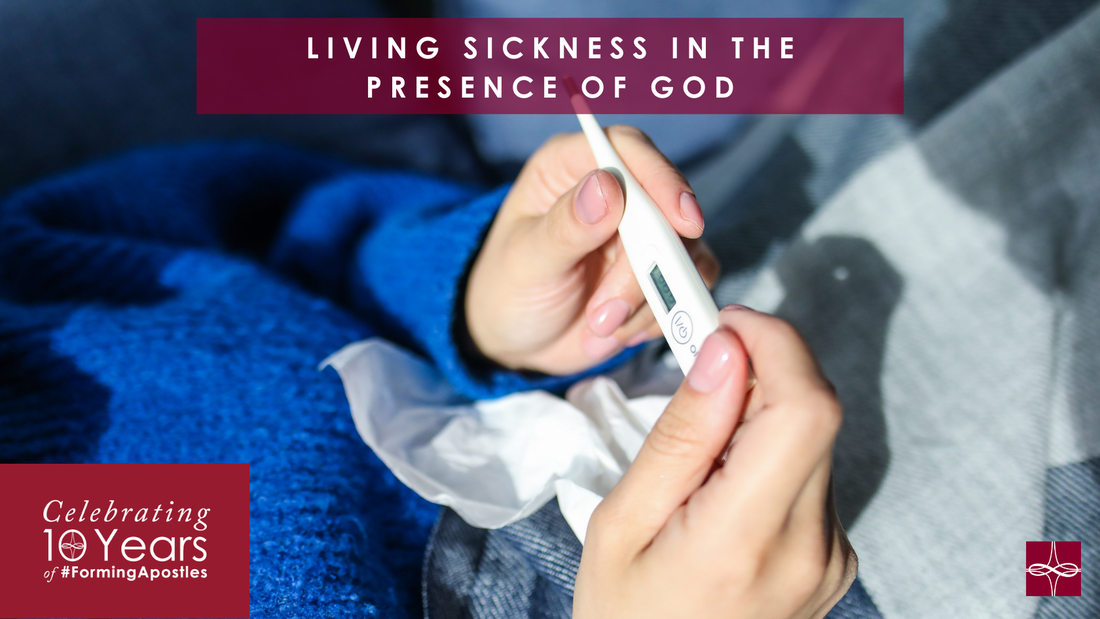

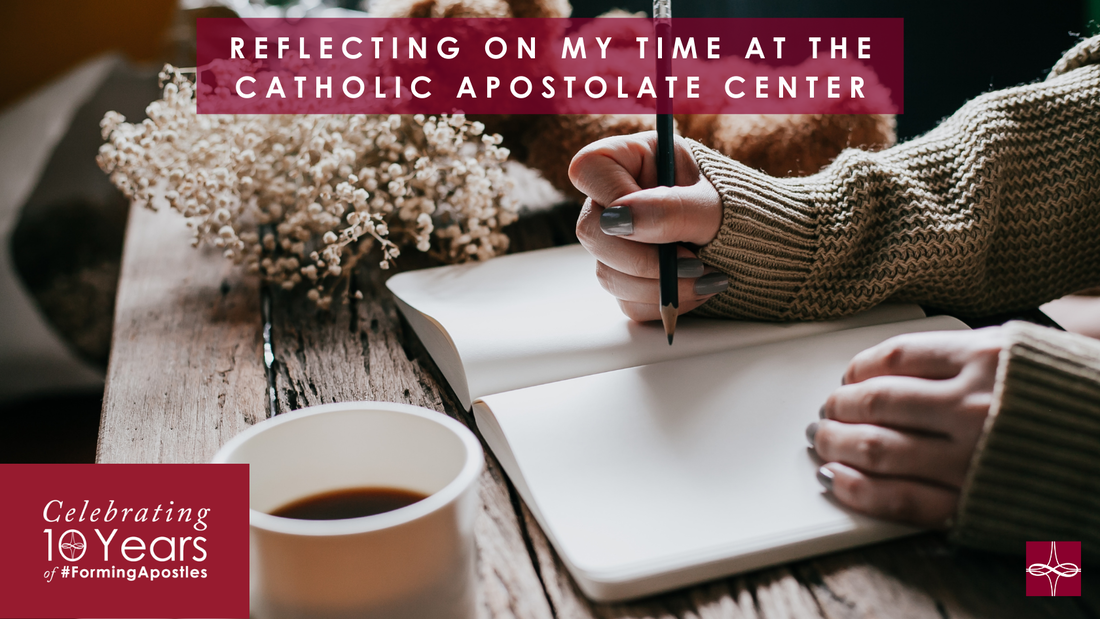



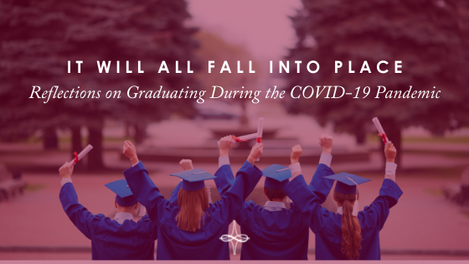
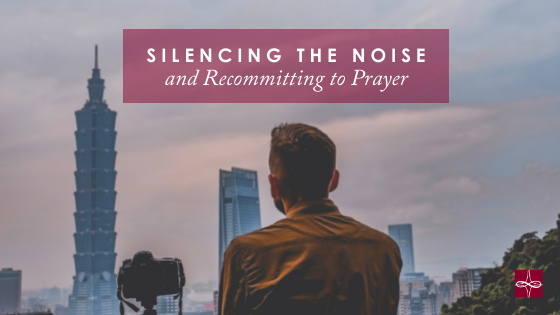

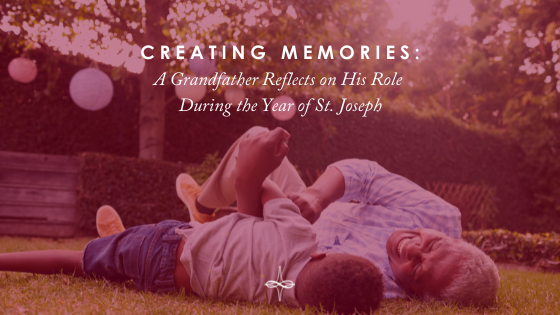
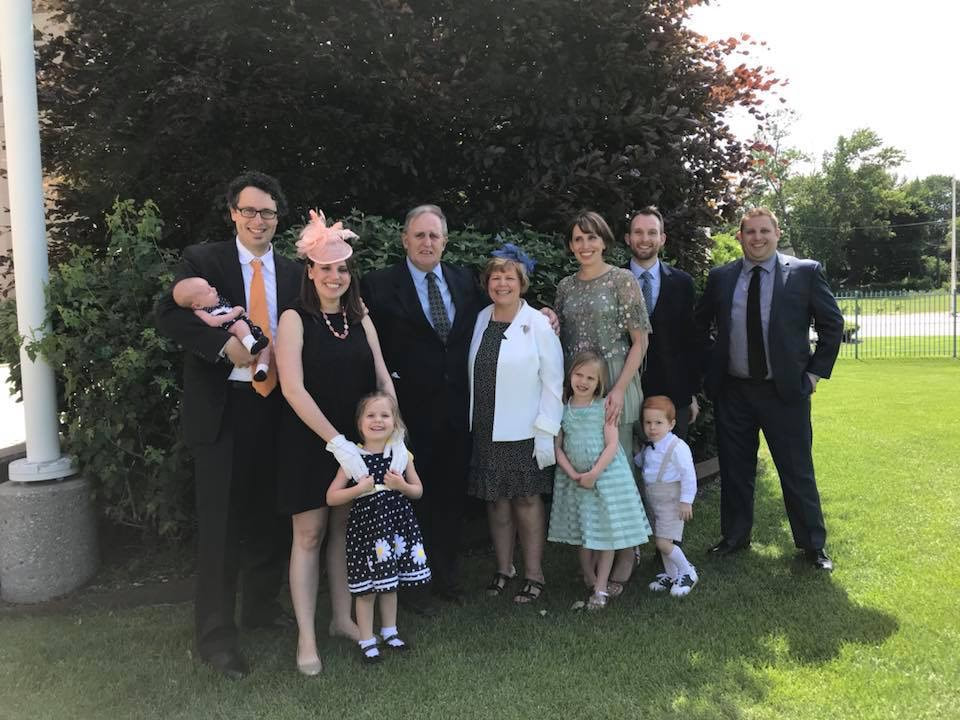
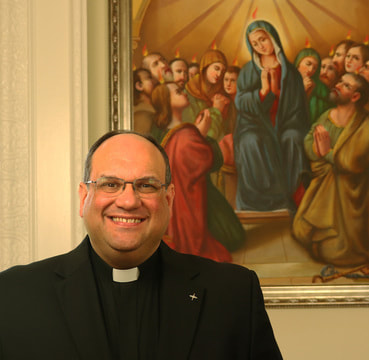
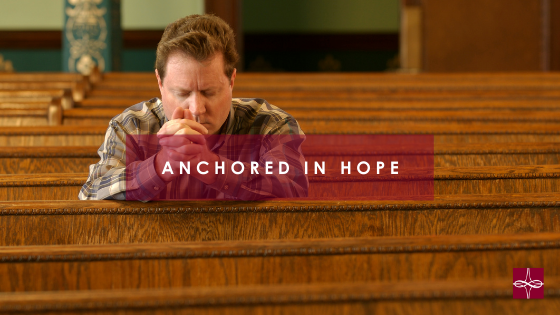
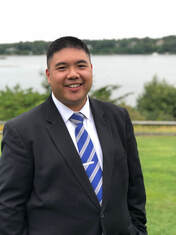
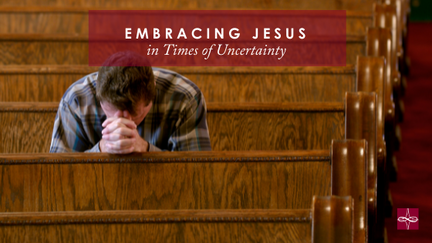
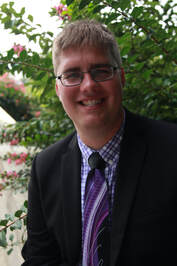
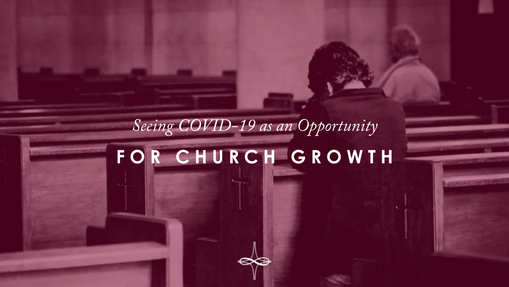
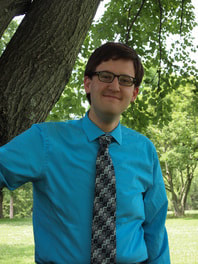
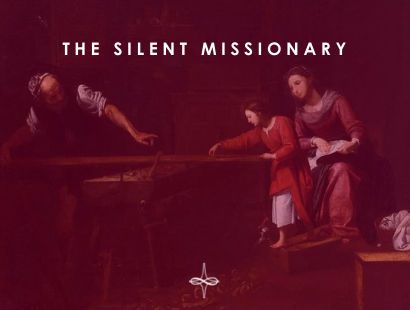

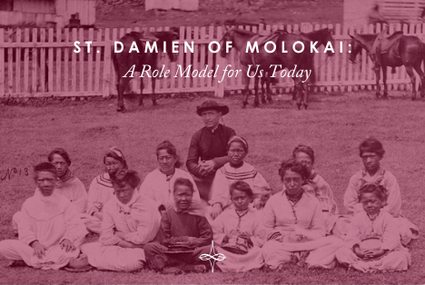

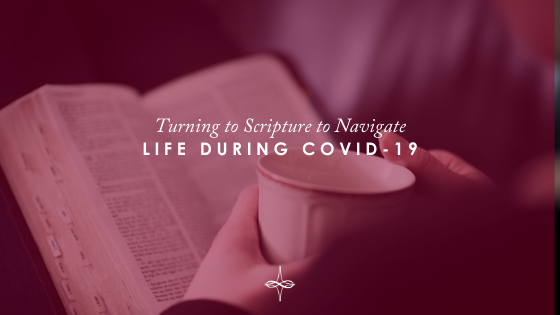

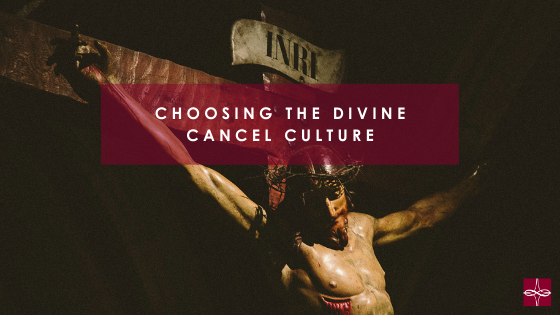

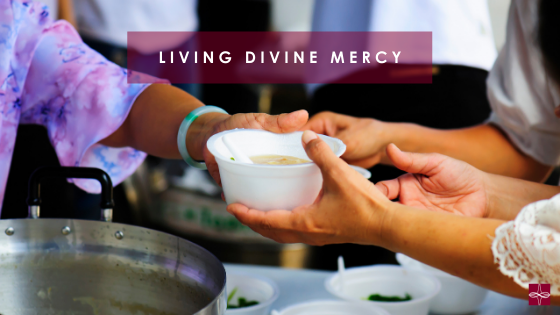
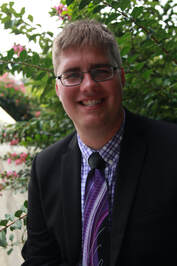
 RSS Feed
RSS Feed